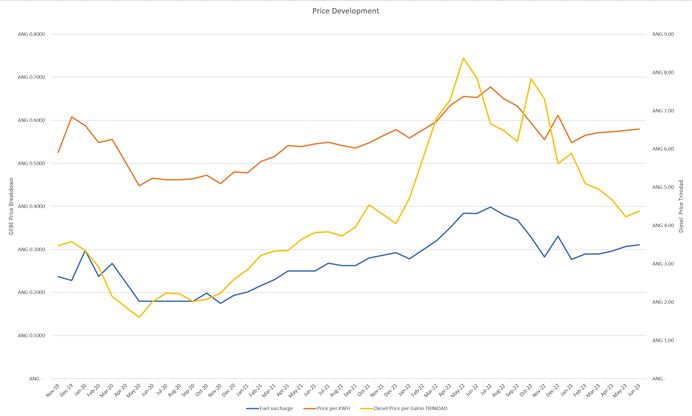Data is king, and I’ve been delving deep into it, especially concerning GEBE’s fuel clause. I want to be clear: I’m not a fan of everything GEBE does, and I know trust in them is low.

But when I crunched the numbers, the increase in the fuel clause seemed more reasonable than expected. Here’s what I found:
Correlation Between Diesel Prices and Fuel Clause: When Trinidad’s diesel prices were low, our fuel clause followed suit (noticeably in dark green). A direct relationship is evident.
Impact of Rising Diesel Prices: As diesel costs rose, so did our fuel clause. The peak was in May 2022, impacting our bills heavily from May to August 2022. For perspective, 200kWh cost ANG 93 in June 2020, but in 2022, it shot up to ANG 130.6 – a staggering 40% hike!
Current Trends: Q2 of 2023 shows a decline in diesel prices. We’re yet to see a corresponding drop in the fuel clause, but I’m hopeful this will bring some relief soon.
A Side Note: My analysis is limited as I don’t have access to higher-usage GEBE bills, which would allow for a more thorough look into their ‘tiered’ pricing system. With more data, we could even develop a bill checker tool to validate GEBE’s claims.
My Takeaway: Let’s turn our focus to renewable energy, like solar power. In Sint Maarten, we’re fortunate to have abundant sunlight, making solar power a viable and sustainable energy solution. Transitioning from fossil fuels to solar not only reduces our environmental impact but also offers more stability against fluctuating fuel prices.






























